13 Oct 2024
Heard But Not Heeded: An 8th anniversary tribute to King Rama IX the Great
Today, Oct 13, 2024, marks the 8th death anniversary of His Majesty King Bhumibhol Adulyadej the Great, the country’s longest reigning monarch, (9 June 1946 – 13 October 2016), known as the “Development King” and curator of the visionary nation-building formula known as the “Sufficiency Economy Philosophy,” long before the MDGs and SDGs came along.

The global Travel & Tourism industry owes a lot to this monarch. Unfortunately, within the ranks of our tourism “futurists, visionaries and thought-leaders” the words and deeds of our home-grown “futurist, visionary and thought-leader” are often heard but seldom heeded.
In 1987, the Thai people celebrated the auspicious 5th-cycle 60th birthday of their beloved monarch with a spectacular tourism marketing extravaganza known as Visit Thailand Year.
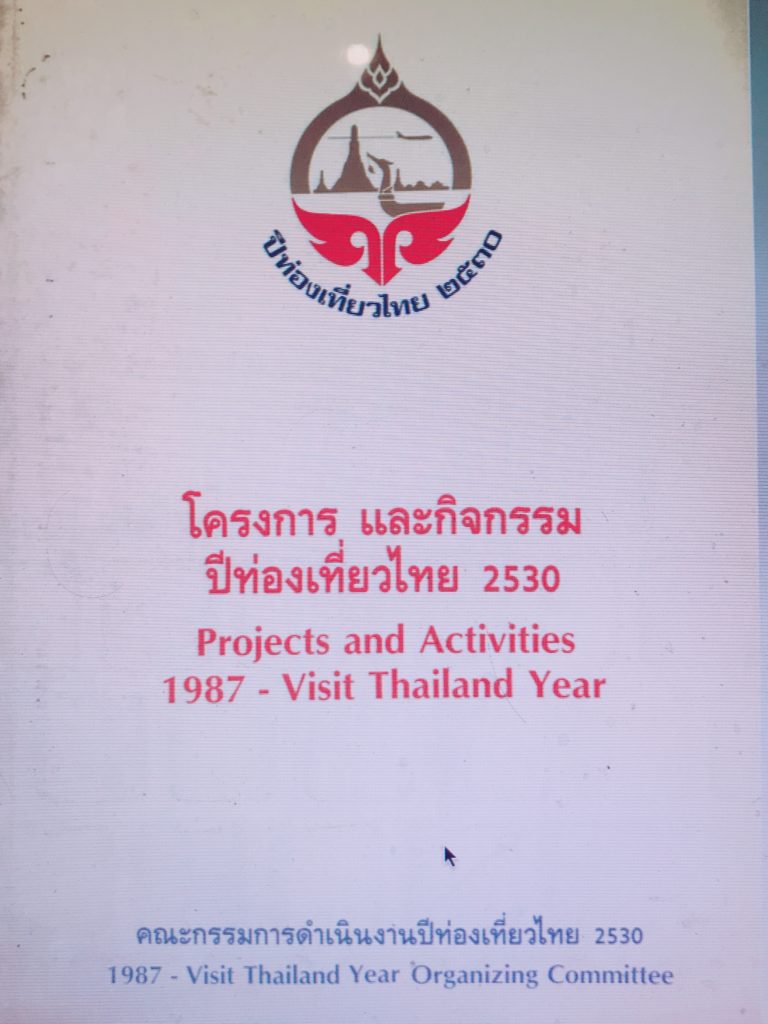
That event united the country like never before. It tapped into the best of what is known today as Thai “soft power” and unleashed a campaign that mesmerised the world, triggering a whole slew of copycat campaigns and leading to the 1990 formation of the World Travel & Tourism Council.
Realising its value and long-term impact, I wrote the only two books in existence about that historic event. Historic, not only because it proved to be such a marketing success but also because it was followed by a management disaster, as Thailand struggled to cope with the spectacular overnight growth in visitor arrivals.
As a case study of both success and failure, the example of Visit Thailand Year 1987 is a classic. The fact that the otherwise divided and factionalised Thai nation could unite and pull it off was a remarkable success. The fact that that edifice of unity fell apart within weeks of the campaign ending is a remarkable failure.
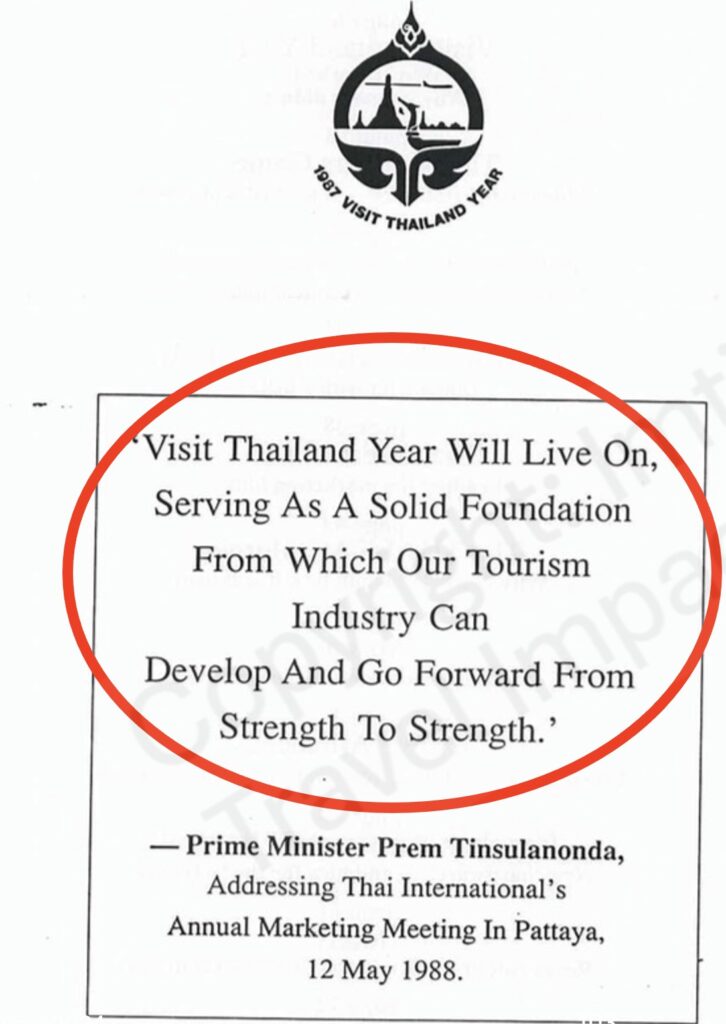
From both perspectives, it is a learning experience par excellence.
In Thailand, sadly, the Travel & Tourism mindset still remains stuck. My lectures on Visit Thailand Year 1987 find few takers. I am told that the lessons of history are nice to know, but not need to know. They don’t generate a revenue stream, and hence offer no return for the time invested in attending them.
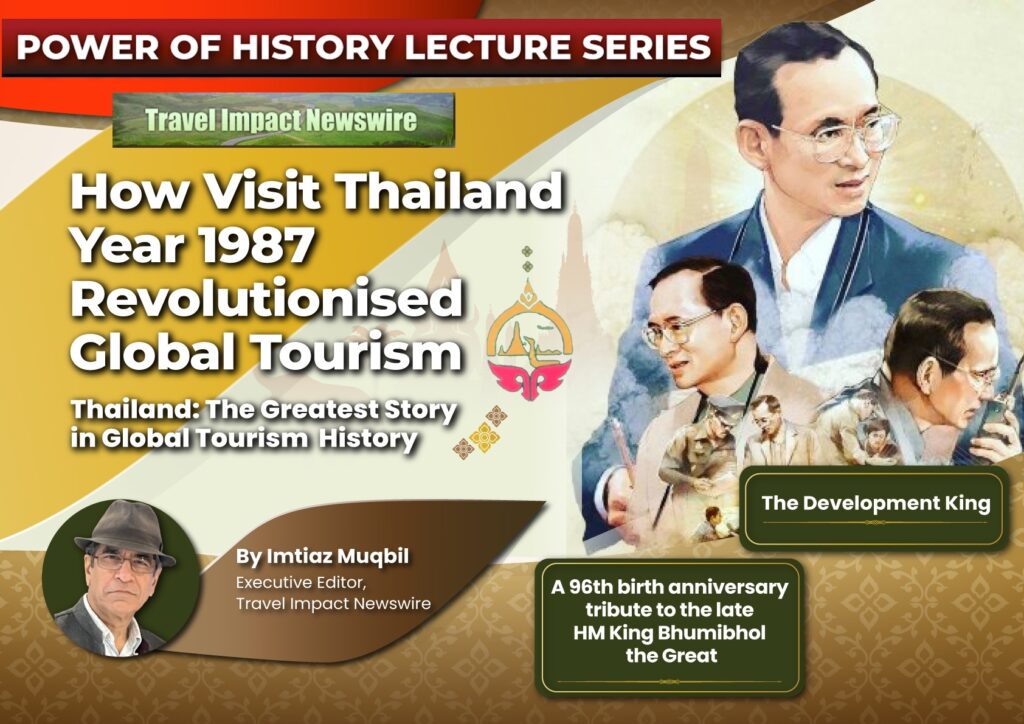
People queue up for lectures on “story-telling” but not hiSTORY-telling.
There is another reason.
Thailand’s academic institutions have no courses on the history of Thai tourism.
In the few lectures which I have given on Visit Thailand Year 1987, including one at the esteemed Siam Society, winner of this year’s Public Diplomacy Award, conferred by the Ministry of Foreign Affairs, academics and professors find themselves somewhat sheepishly embarrassed to realise how little they know about this phenomenal event.
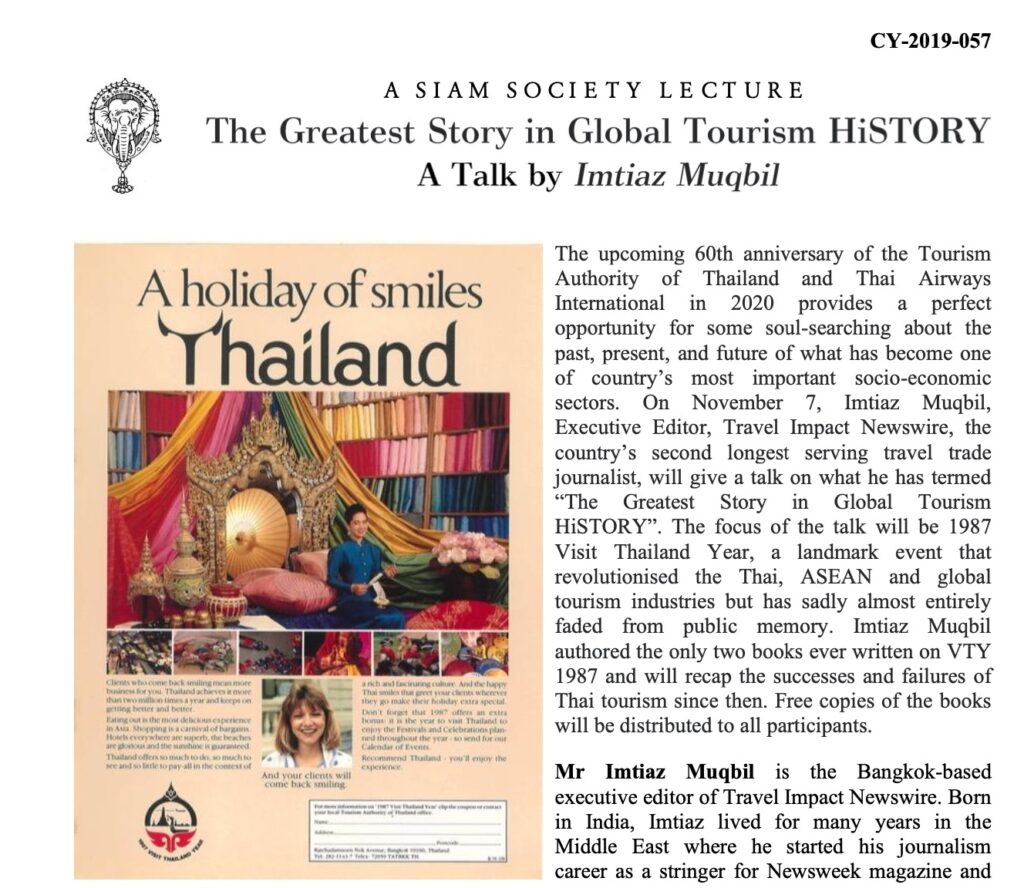
Public sector government agencies, too, are reluctant. Unlike the fictitious fairy-tale “stories”, lectures on “hiSTORY” do not always end with “they lived happily ever after.”
Reminding people about these unhappy endings invariably raises awkward questions about the reasons and who/which agency did not do its job.
The end result: The “future generation”, about whom everyone seems to be very concerned, gets no chance to learn the lessons of history.
Thus, history repeats itself, endangering the future of that same “future generation.”
It gets worse.
In 1997, just 10 years after Visit Thailand Year 1987, the country suffered the worst economic crash in history. That, too, had a global ripple-effect.
King Bhumibhol’s visionary Sufficiency Economy Philosophy (SEP) grew out of the ashes of that crisis.
Like all his social, cultural and environmental development models, the SEP was designed to help future generations learn the lessons of that crash and beware the consequences of pursuing a debt-fuelled, greed-is-good society.
That was long before “sustainable development” became a buzzword.
Travel & Tourism again played a major role in the post-1997 economic crisis recovery.
But it also repeated the same mistakes.
Just a year later, in 1998-99, another royal anniversary came to the rescue, the King’s next auspicious 6th cycle 72nd birthday. That, too, was repackaged as a tourism campaign, giving birth to the immortal branding slogan, Amazing Thailand.
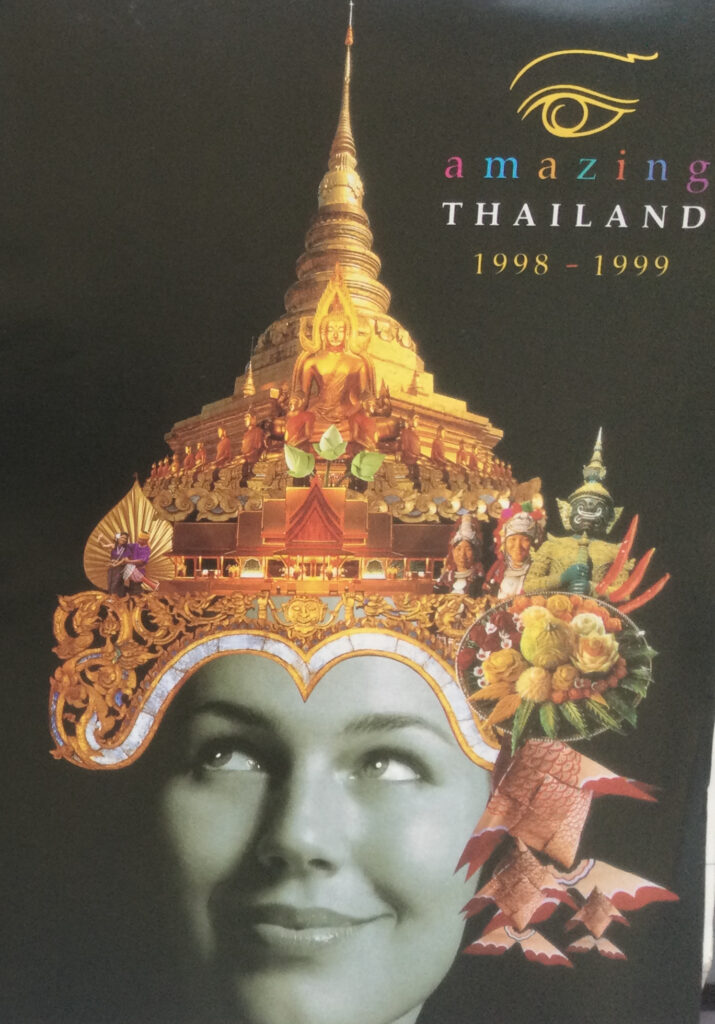
That year, Thailand received 8.5 million visitors, more than double the 3.7 million arrivals of 1987.
The numbers skyrocketed thereafter, especially after the Chinese market opened up. The rise was held back only by the terrorist attacks of September 2001, the attack on Iraq in 2003 and the Thai political crisis of 2005.
By then, however, the floodgates were fully open. All crises became momentary. The value of Thai tourism as an economic development force was well proven. Ensuring its rapid revival and recovery was no longer an option.
Those cycles have continued to turn over the years.
In spite of that, Thailand, and the Thai tourism industry, see no value in learning the lessons of history.
The Sufficiency Economy Philosophy has never been seriously considered as a mainstream tourism development model. Instead, the industry blindly adopts external formulas like ESG, CSR and DEI.
Today, yet again, it is back to the future.
Tourism is booming, but the society is deeply polarised. King Rama IX the Great is gone. Another unavoidable demographic transition is under way at that level. The era of Royal anniversaries is over.
The complexities of an unstable local, regional and global environment pose a clear and present danger to the future of Thailand.
No government agency knows this better than the Ministry of Foreign Affairs. It is now trying to recast Thailand as “bridge-builder”. I have tried to frame that slogan in a tourism context, as the world’s first “Alliance of Civilisations” destination.
I unveiled this concept for the first time at two events of the PATA Thailand Chapter in Sept 2023. As I had expected, neither the participants nor the executive committee members saw any value. A few months later, the committee booted me out entirely.
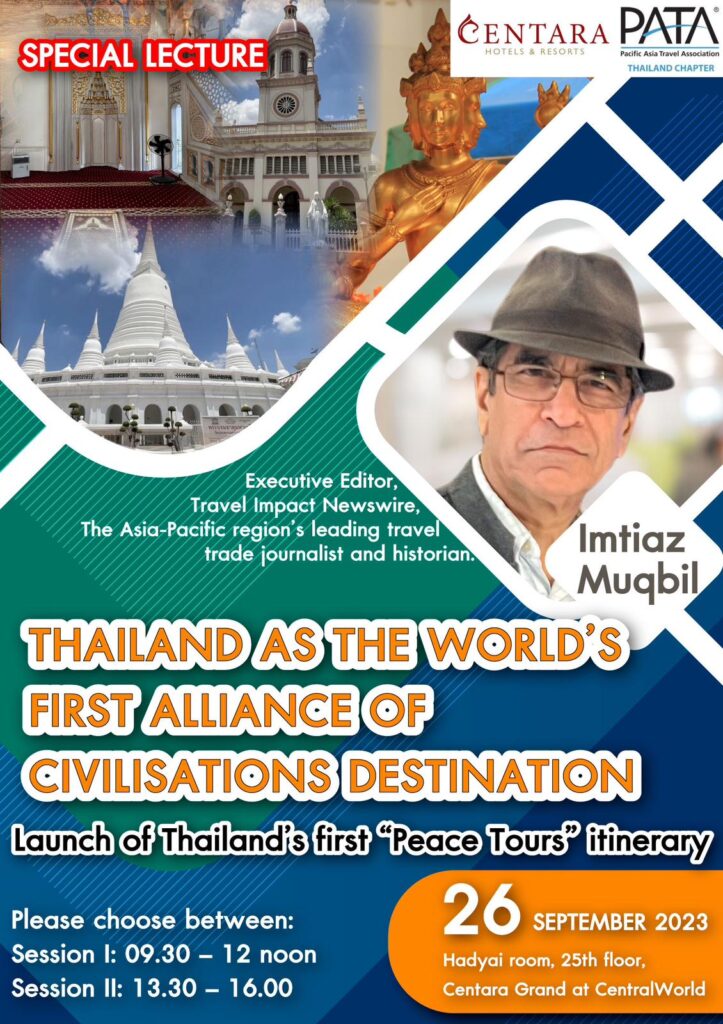
In the post-Covid era, tourism has become Thailand’s economic bedrock. The marketing bandwagon has to roll on.
For 2025, another slogan has been coined, “Amazing Thailand Grand Tourism Year”. Next year will also mark the 65th anniversary of the founding of both Thai Airways International and the Tourism Authority of Thailand.

Another chance to learn the lessons of history has presented itself.
Like the country’s population, Thai tourism is also an “ageing industry.”
Age is usually associated with wisdom. It is also a time for reflection and soul-searching.
Anniversaries such as today, marking the 8th anniversary of the death of King Rama IX the Great, are a good time to reflect on the history of Thai tourism.
In his lifetime, the late King was often heard, but seldom heeded.
It is never too late to change that.
